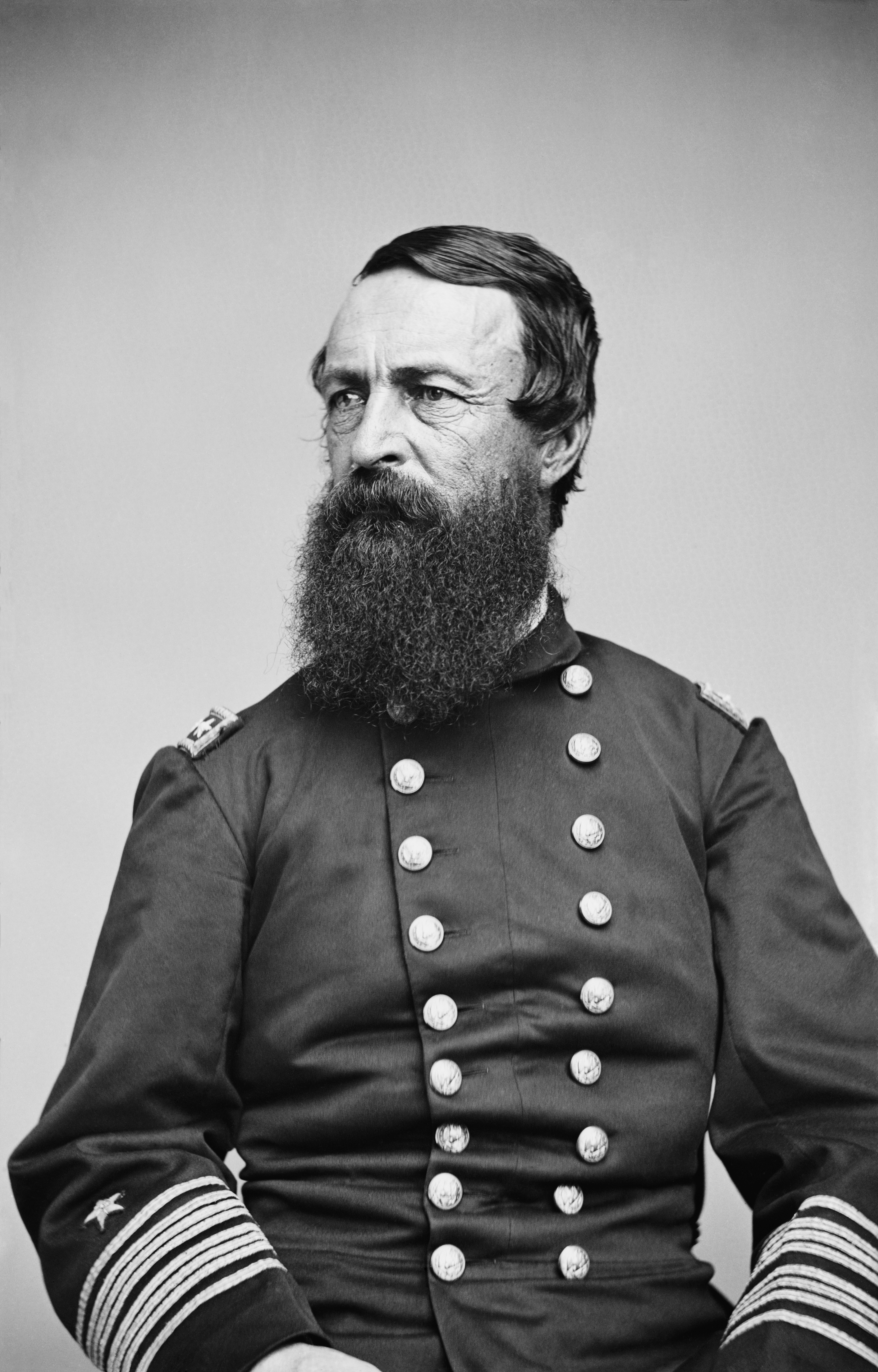Источник: 1880s, Incidents and Anecdotes of the Civil War (1885), p. 296
Контексте: It was not a model style for the President of the United States to enter the capital of a conquered country, yet there was a moral in it all which had more effect than if he had come surrounded with great armies and heralded by the booming of cannon. He came, armed with the majesty of the law, to put his seal to the act which had been established by the bayonets of the Union soldiers the establishment of peace and goodwill between the North and the South, and liberty to all mankind who dwell upon our shores.
Портер, Дэвид Диксон: Цитаты на английском языке
Источник: 1880s, Incidents and Anecdotes of the Civil War (1885), p. 296
Контексте: He did not say a monument to what, but he meant, I am sure, to leave it as a monument to the loyalty of our soldiers, who would bear all the horrors of Libby sooner than desert their flag and cause. We struggled on, the great crowd preceding us, and an equally dense crowd of blacks following on behind all so packed together that some of them frequently sang out in pain.
“[T]he navy performed its part of the operations.”
Источник: 1880s, Incidents and Anecdotes of the Civil War (1885), p. 214
Источник: 1880s, Incidents and Anecdotes of the Civil War (1885), p. 317
Источник: 1880s, Incidents and Anecdotes of the Civil War (1885), p. 296
Источник: 1880s, Incidents and Anecdotes of the Civil War (1885), p. 122
Источник: 1880s, Incidents and Anecdotes of the Civil War (1885), p. 295
Источник: 1880s, Incidents and Anecdotes of the Civil War (1885), p. 38
Источник: 1880s, Incidents and Anecdotes of the Civil War (1885), p. 204
Источник: 1880s, Incidents and Anecdotes of the Civil War (1885), pp. 214
Источник: 1880s, Incidents and Anecdotes of the Civil War (1885), p. 296
Источник: 1880s, Incidents and Anecdotes of the Civil War (1885), p. 296
Источник: 1880s, Incidents and Anecdotes of the Civil War (1885), pp. 283–284
Источник: 1880s, Incidents and Anecdotes of the Civil War (1885), p. 282
Источник: 1880s, Incidents and Anecdotes of the Civil War (1885), p. 296
Источник: 1880s, Incidents and Anecdotes of the Civil War (1885), p. 269
Источник: 1880s, Incidents and Anecdotes of the Civil War (1885), pp. 202– 203
Источник: 1880s, Incidents and Anecdotes of the Civil War (1885), p. 318
Источник: 1880s, Incidents and Anecdotes of the Civil War (1885), p. 144
Источник: 1880s, Incidents and Anecdotes of the Civil War (1885), p. 296
Источник: 1880s, Incidents and Anecdotes of the Civil War (1885), p. 56
Источник: 1880s, Incidents and Anecdotes of the Civil War (1885), p. 297
Источник: 1880s, Incidents and Anecdotes of the Civil War (1885), p. 285
Источник: 1880s, Incidents and Anecdotes of the Civil War (1885), p. 63
Источник: 1880s, Incidents and Anecdotes of the Civil War (1885), p. 283
Источник: 1880s, Incidents and Anecdotes of the Civil War (1885), pp. 122–123
David D. Porter, Incidents and Anecdotes of the Civil War https://ia802604.us.archive.org/9/items/incidentsanecdot00port/incidentsanecdot00port.pdf (1885), p. 274.
1880s, Incidents and Anecdotes of the Civil War (1885)
Источник: 1880s, Incidents and Anecdotes of the Civil War (1885), p. 66
Источник: 1880s, Incidents and Anecdotes of the Civil War (1885), pp. 34– 35
Источник: 1880s, Incidents and Anecdotes of the Civil War (1885), p. 283
